Announcer:
The following program is a PBS Wisconsin original production.
Zac Schultz:
Reeling from political violence, Democrats forge ahead with a new state party leader, and Republicans move closer to finishing their vision of the state’s budget.
Good evening. I’m Zac Schultz, filling in for Frederica Freyberg. Tonight on “Here & Now,” the new chair of the Democratic Party of Wisconsin, Devin Remiker, is here. At the Capitol, Speaker Vos speaks to where his party is on the state budget. Plus, a proposal looks to shine a light on assisted living referrals and how will the economy fare under the weight of tariffs and international conflict. It’s “Here & Now” for June 20th.
Announcer:
Funding for “Here & Now” is provided by the Focus Fund for Journalism and Friends of PBS Wisconsin.
Zac Schultz:
The Democratic Party of Wisconsin has a new leader. At last week’s state convention, members elected Devin Remiker as chair of the party after he previously served as the party’s political director and he joins us now. Thanks for being here.
Devin Remiker:
Thanks for having me. Appreciate it.
Zac Schultz:
So Ben Wikler is a name that a lot of people recognize from Democratic politics. He was the chair of the party the last six years, oversaw a lot of very successful elections. What will change? What will be different from — in the transition from Ben to you?
Devin Remiker:
Yeah, absolutely. Well, I think we have a fantastic opportunity to be able to build on the success that Ben Wikler has laid down and what he built on the successes of chair Martha Laning before him. We have a fantastic year-round organizing program. We have a robust donor strategy for large, medium, small donors across this country, and we also have an opportunity to do more in 2026. So I’m really excited to get to work expanding our 72 county strategy to make sure that we have robust infrastructure in every corner of the state, above and beyond, just organizing and knocking on doors, improving our messaging and communications with localized messaging in each and every community in the state to make sure that we can authentically connect with voters and keep our eye on the prize with the chance for a trifecta next year.
Zac Schultz:
So we’ve seen party chairs in the past keep a lower profile in the public sphere, and obviously Ben became the face of the party in a lot of ways. What’s your style?
Devin Remiker:
Well, I think that we have a really unique opportunity to change the way that we communicate and to reach voters in places that we haven’t been able to before. One thing I’m really excited about coming into this role, obviously, as a 32 year old, I’m a little bit younger than a lot of folks may otherwise be in politics, and I think that that can give me an opportunity to connect, particularly with younger voters, that our party’s had some difficulty with in the last election, to be able to reach them in authentic, engaging ways. In addition to all the traditional media that Ben has done before, I’m also really excited to partner with First Vice Chair, Secretary of State Sarah Godlewski to also maintain a lot of the communications work that we’ve done, and I think that we’re going to get out the gate pretty strong.
Zac Schultz:
So national polling shows the image of Democrats is not great right now in the Trump era. Do you expect that to change due to national events, or is that something that you have to change yourself?
Devin Remiker:
Well, I don’t think we should take for granted that, you know, someone’s going to come over the hill as cavalry and be able to change what we’re doing here in Wisconsin. I think we have to build the plan to win and advance our candidates here in the state ourselves. And we can, if we can get help with that, that is fantastic. But at the end of the day, I think that we have had a very distinct sort of set of outcomes in Wisconsin that is different than national Democrats across the country. I mean in 2024, not many people would have put money on Wisconsin being the closest out of all the battleground states, to the left of Michigan and Pennsylvania, even when that just hasn’t been the case in 2020 or 2022. So I think that the way that we’ve done that is by making sure that we are supporting our candidates year-round. Every spring, special, fall election, connecting with folks authentically on the issues that they care most about and really what I’m trying to do is just take that work to the next level and build the plan that we need here.
Zac Schultz:
Now, you’ve mentioned Wisconsin being to the left of Michigan and some of those other traditional blue wall states. Over the last 15 years, we’ve seen a political realignment with rural working-class voters shifting more towards Donald Trump and the Republican Party and Democrats doing better in suburban areas with college-educated voters. There are people that think Wisconsin is actually more ripe for Republicans to do well, because there are more traditional Democratic voters that have not swung to the Republican Party. And that is why Wisconsin is still to the left, to a slight degree. What do you do to keep those voters? You talked about your youth. How do you connect with some of those people that are coming up that may be disengaged from that party?
Devin Remiker:
Absolutely. Well, I think that my background also helps a lot. I’m — was born in Two Rivers, Wisconsin, and I think that the story of Two Rivers and neighboring Manitowoc mirrors a lot of communities around this state. There was a — there was a factory in Two Rivers named Hamilton’s. They closed up in the mid to late 2000. These were good paying union jobs with great benefits. It was hollowed out and all that was left was basically an empty lot of land contaminated with chemicals that are basically stuck in the ground, and they’re trying to mitigate right now. And it kind of ripped the heart out of this community. Right. And this was, this was a community that took pride in being working class, in making something. And once that was gone, it really lost a little sense of soul. And I think that you see that all over the state. And I think that that is something that Democrats haven’t been as effective in speaking to is that sort of lost sense of self and identity to working class voters. And I think that is where Republicans have had some success filling that void. So something I want to do is just be more attentive and attuned, because it’s my lived experience of how to connect with people and talk about a positive, optimistic vision of the future that they can actually connect with and speaks to sort of that identity as working class people that want to work hard and earn a fair wage and don’t necessarily just want to be given something.
Zac Schultz:
You’ve mentioned a couple times about the possibility of a trifecta. Democrats winning control of the Legislature in ’26. How closely are you watching those GOP potential targets, especially as they’re struggling to pass a budget right now.
Devin Remiker:
Incredibly closely and I think that they are making a grave mistake by not coming to the table and finishing out the budget process with Governor Evers. I mean, candidly, they’re also fighting with themselves at this moment in time, which I don’t think is good for their party in the long term. But, I mean, you have folks like Howard Marklein who didn’t even bother to consider the fact that Medicaid cuts could be coming from the federal government when they originally were thinking about this budget. I mean it’s ridiculous. It’s hard to take that seriously. And I think that we’re going to be very aggressive in making sure that voters this summer know about what their representatives and senators are doing, or rather, not doing. I mean, they need to get back to work, negotiate with the governor, and get a deal done to move this state forward.
Zac Schultz:
Obviously, there is a political and national tragedy in Minnesota with the shooting of legislators there. Does that impact your ability to recruit candidates, especially since there were Wisconsin Democratic names on the list of the shooter?
Devin Remiker:
Yeah, well, we haven’t seen any impact as to this point in time, but I think that, you know, for myself personally and many people, it was it was a terrifying moment, you know, and I’m glad that we could sort of put politics aside. And as human beings, see Democrats and Republicans put out a strong statement condemning that. Obviously, it happened during our convention weekend. And, you know, one of the first conversations I had with my wife after being elected chair was about, do we need to adjust our own sort of security measures or precautions? Is this something we need to worry about? And I don’t think anybody in politics should have to worry about their livelihood being taken away from them. I do think we need to find ways to take down the temperature and the rhetoric a little bit, which is also why I’m so disappointed to see Representative Derrick Van Orden right after sort of making his performative statement, just lean right back into vitriol, That sort of behavior is exactly what we need less of in politics. And from my experience working for Congressman Ron Kind for four years, something that voters in western Wisconsin really don’t respond well to.
Zac Schultz:
All right, Devin Remiker, thanks for your time.
Devin Remiker:
Thank you. Really appreciate it.
Zac Schultz:
Republicans in control of the Legislature announced this week they have continued budget negotiations with Governor Tony Evers. But just as quickly, two Senate Republicans announced they had major concerns, leaving them short of a majority to pass the bill, possibly shutting down the whole process. We sat down with Assembly Speaker Robin Vos to talk about the sticking points in the budget talks. Mr. Speaker, thanks for your time.
Robin Vos:
Thanks Zac, appreciate having me on.
Zac Schultz:
So it looks like the budget negotiations are very fluid. Bring us up to date on where we stand between the Senate, the Assembly and the governor.
Robin Vos:
Yep. So weeks ago, we began talking with Governor Evers because our goal is to get a budget signed into law that has guaranteed tax relief for Wisconsin citizens. We negotiated in earnest. At some point, it felt like the governor really wasn’t being flexible enough for us. So we said, let’s just start the finance process and see where it goes. So we began to go through the process like we always do, with a goal of being done by July 1st. And then several weeks ago, we also decided, look, if there’s a way we can stay engaged with the governor. I’m not opposed to negotiating. I’d like to get something that we can all live with. So we began talking again with the Assembly and the Senate. I feel like we have a very broad, vague, general framework of where we could get to. So I’m optimistic that we could actually conclude by the end of July. Now it’s just up to all three parts to continue negotiating. And it sounds like as of today, my Senate colleagues don’t want to do that, which I think is a real shame, because if Governor Evers vetoes the budget, no property tax relief, no funding for schools, and no one wins. So that is not our goal. It’s to find something that we could all live with. And I guess I’m still an optimist that we can do that, but only time will tell.
Zac Schultz:
Obviously, the math in the Senate is they can only lose one vote as a Republican majority before they need to rely on Democrats.
Robin Vos:
Sure.
Zac Schultz:
Is there any point at which you would ask the governor to put pressure on the Democrats in the Senate, or try and include some of those Democrats to see if you can secure a vote that way?
Robin Vos:
Well one of the things I learned a long time ago is I love the Assembly, right? That is where I get to work. If I predicted what was going to happen in the state Senate, I would have even less hair than I do right now, right? So I have no idea what they’re going to do over there. Here, I feel very confident that we have almost all, if not all, Assembly Republicans in general agreement with our framework. Again, the budget’s got to work its way through. There are still details left to work out but the idea that we’re going to make investments in special education, that’s something that we support. The idea that we’re going to invest in childcare, we agree with that, too. That we’re going to have significant tax relief, hopefully focusing on retirees and the middle class, that’s a winner. So I think you check a lot of boxes that get Republicans to want to be a yes. Now we just have to get a bill to the governor so we can actually be done with our part of the process.
Zac Schultz:
In December, you said that you would have liked to see the tax cuts passed before the budget.
Robin Vos:
Yeah.
Zac Schultz:
You went into negotiations. Are what we seeing passed out of joint finance similar to what the governor has agreed to do? Did you kind of get his answer on where he was willing to go and that’s what’s before?
Robin Vos:
I mean I don’t want to speak for the governor, but I do feel like we’re trying not to do things that would draw a veto. That is not our goal. We want to do things that I think he hopefully could sign. Look, there are things that in a compromise I’m going to not love, but the whole is better than the parts that I dislike. And I’m sure he would probably say the same thing. There are parts that he wished were different, but I hope in the end he’ll be able to look at it and say, in total it’s a better deal than doing nothing.
Zac Schultz:
When it comes to public education, obviously the governor’s veto from the last budget created the parameters where school districts have the ability to raise funds on a per pupil basis that’s not funded under the Republican budget. Is this kind of a standoff of who will take the blame in the public’s eyes for rising property taxes if the state doesn’t fund it?
Robin Vos:
Well, it’s really — there’s no argument. Governor Evers issued a veto for a 400-year property tax increase. He did it. He has to own it. I mean, literally, it was his own decision. Of course, it was ratified by his liberal allies in the state Supreme Court. Of course, they’re going to rubberstamp whatever he does. So, I mean, that’s not a surprise what actually occurred, but where we’re focused is to say, “Ok, that’s decided. We’re not going to change Governor Evers’ mind. He’s not going to all of a sudden say, “We shouldn’t raise property taxes.” He already accepted that we will forever. So we’re focused on where we can actually find that agreement. I don’t want property taxes to go up. If it were up to me, it would have been a different result. But I didn’t vote a liberal majority and I didn’t vote for Governor Evers so I kind of have to accept the reality of where we are.
Zac Schultz:
In negotiations has Governor Evers asked you to fund that per pupil increase, or is he rather see some of the whatever money is available to go into other pots?
Robin Vos:
Again, I don’t want to speak for Governor Evers, but our negotiations have been mostly focused around the cost of special education. One of the things that Assembly Republicans brought to the table is a proposal which would say for kids who cost over $30,000, for high cost, special ed kids, the state’s going to pay 90% of that. That’s what really is bankrupting or hurting an awful lot of school districts. You get one or two kids in a small district that have intense special needs, and they don’t have the ability to fund it, so they have to cut other programs to put a package together to satisfy that child. So we want to — we think that’s a great way to do it. Governor Evers wanted more money in special ed. We always agreed with that. It’s just discussing how much we’re able to afford as a state. We need to have — we have a lot of priorities. Schools are an important one. But look, I care about how much we spend on health care. I care about how much we spend on raises for public employees. I care about how much we’re going to spend on child care. There’s a lot of things that we have to balance out, all while keeping in mind that we’re overtaxing the citizens of Wisconsin. We got to give some of that back.
Zac Schultz:
The most recent news on the UW system funding is a $87 million cut, potentially. If that stands, would you expect to see tuition to increase? Would that lead to closures at some of the two-year schools?
Robin Vos:
Well, first of all, our goal is not just to slash the university, just to slash the university. That does no one any good. We have tried to say for a long time that there have to be reforms into how they operate. I mean, here’s one statistic that I hope everybody thinks about that I just read a study this week that shows from the year 2025 today through 2029, just four years from now, we’re going to have 15% fewer Wisconsin graduates going to college. Now, that’s not because the university is not accessible. It’s because people are having fewer kids and there are lower numbers of high school graduates. So if you had one out of seven fewer customers, the store couldn’t operate the same way. It would go bankrupt. Well, it’s the same for the university system. If we don’t figure a different way to operate. It’s not just dumping more money in there. It’s saying, “Wow, we have a lot less kids going to college. How are we going to make sure that system is nimble, that we do it in a way that actually makes people want to go there and it’s not this woke mumbo jumbo that people hate.” So we’ve asked for some simple reforms. We need faculty members to teach more. We need to make sure that if you take a class at Whitewater, it transfers to Superior without a lot of bureaucracy in the middle. We’re not trying to do things that are radical, but we’re trying to do things that will make it easier for families to get out of school quicker and hopefully do it in a way that’s more meaningful to them and their family.
Zac Schultz:
There’s quite a few high-profile issues we’ve discussed. Give me one thing that the Republicans have put in the budget that’s under the radar that you think deserves more attention.
Robin Vos:
Hmm, boy, I feel like we’re focusing on so many areas that people care about. I mean, one thing that I want to focus on is this retiree tax cut. Look, we all have moms and dads. We all have people who we love that made a decision once they retire to go somewhere warmer, right? I can’t fault people for the weather. I mean, even though I like the winter here, but a lot of people don’t. But they choose to live six months and a day somewhere else, so they pay their taxes there. Well, in Florida, Tennessee, Texas, a lot of times you can live cheaper and have no taxes, so they choose to domicile somewhere else. Well, that means their charitable donations, their volunteer hours, seeing their grandkids all goes away. So we have a proposal that would say that the first $35,000 of retirement income tax exempt. That means for the average couple, two teachers, two firefighters, a teacher and a firefighter, they’d save about 1500 bucks a year. I think that’s something that would seriously make a dent in family budgets to be able to help them as opposed to, you know, doing something that only saves them a couple bucks, which probably doesn’t do very much. So I think that’s not gotten anywhere near as much coverage as I hope it would. And hopefully that’ll be something that can be signed into law.
Zac Schultz:
Speaker Vos, thanks for your time.
Robin Vos:
Thanks Zac, appreciate your time.
Zac Schultz:
As the baby boomer generation continues to age, the need for assisted living facilities in Wisconsin will continue to grow. With one recent estimate saying we’ll need more than 60,000 additional beds over the next 15 years. More and more seniors and their families are using a referral agency to help them choose a facility and a proposed bill at the Capitol would add some transparency to explain who’s actually paying for those services. Joining us now is Mike Pochowski, CEO of the Wisconsin Assisted Living Association, the trade group that represents those facilities. And thanks for your time today.
Mike Pochowski:
Thank you for having me.
Zac Schultz:
So let’s start by explaining what is a referral agency and how do they interact between families and the facilities themselves.
Mike Pochowski:
Sure, there’s essentially two types of referral agencies. You have the local ones that are specifically geared towards Wisconsin, and you also have the national ones. And so they really work with the families to try and find placement for those individuals, but they contract with assisted living facilities specifically. So they don’t give you a full picture of who you could potentially move into, because they only give you referrals for those facilities that they contract with.
Zac Schultz:
So part of this bill talks about making it obvious who pays, because the referral agencies claim there was no fee for the families. They get paid on the back end. But there’s concerns that those fees are passed along.
Mike Pochowski:
Absolutely. So what happens is they advertise themselves as being this free service to individuals and to families. It’s not a free service. The fees are paid by the facilities that they contract with. And so what happens, unfortunately, is that because those fees are very high, they get passed down to the consumer or to the residents that live in those facilities.
Zac Schultz:
So the incentive for referral agencies to send clients to more expensive facilities, at least that’s what the trade groups feel is happening for some of these agencies.
Mike Pochowski:
Correct. For the most part, these referral agencies charge anywhere between 85% to 100% of the residents first month rent and care. And so what happens is that gives them the incentive to move individuals into higher priced facilities, because they can get a higher fee with that. The problem with that, too, is that what happens is for these individuals, they spend down their assets more quickly, making them Medicaid eligible faster. And so we already have a Medicaid system that’s already having lots of problems. So it just enhances the problem with our Medicaid program.
Zac Schultz:
So what would this bill do? What’s the number one takeaway that this would accomplish?
Mike Pochowski:
It provides greater consumer transparency. It lets everyone know that there’s contracts between the facilities and the referral agencies. That the facilities are paying a high fee for these referrals. And it just lets the consumer know that there’s also other avenues they can go to try and find placements versus working with just a referral agency, who is only going to steer you towards a facility that they contract with.
Zac Schultz:
So referral agencies advertise their services, almost doing the homework for the seniors or the families but what kind of homework should a family do before going through a referral agency?
Mike Pochowski:
Sure, absolutely. They can contact their local ADRC, which has a full list of all the facilities that are in that geographical area for that resident or family, or they can contact the facility directly. Just kind of say, “You know, what services do you provide? What’s the environment? Can I come and tour, talk with the residents, talk with the staff?” Just go that route directly.
Zac Schultz:
Now, you said there were national and local groups, and often we find those disparities. Locals are more local. Do they do a better job in your estimation?
Mike Pochowski:
In our part, there’s probably pros and cons to both. I think the nationals, you’re right, is probably more just geared towards from a national perspective. They can’t focus just on one state. For the ones that are more state based, they probably have more information and more resources from a state based or a local based resource.
Zac Schultz:
So the industry overall is facing a shortage of beds, shortage of workers, low pay. What are the steps involved with handling this new influx of patients because obviously this is, this is just transparency. If it passes, it’s not fixing any of the other bigger problems.
Mike Pochowski:
Right. Exactly. You’re absolutely correct. So we, right now, we have a state budget that’s being worked on right now. We’re asking for, you know, continuation of funds in the family care or the Medicaid waiver program. So we need to get more funds into that program to help pay for workers, pay for the increasing cost of goods and services and everything else that’s going on.
Zac Schultz:
So for families that aren’t connected directly in the same state or the same town as their loved ones that need this care, what would you recommend them to do? You said you can reach out, but that’s time consuming. That’s why these agencies popped up in the first place.
Mike Pochowski:
Absolutely. I would still say, you know, contact your local ADRC. They’re very helpful. They’re a great resource. And just look on the internet, find facilities that are in the area that you want to move into and look at those directly and contact them directly.
Zac Schultz:
So we have a little bit less than a minute left. Obviously, there’s national implications for Medicaid funding. How does that play into some of these concerns?
Mike Pochowski:
We’re very concerned if there’s going to be national cuts into the Medicaid program, because that would trickle down to the states. We already have a state budget that’s looking to potentially cut Medicaid funds as well. So we’re definitely doing our best to kind of push for at least continuation of funds. But yeah, we’re hearing of cuts all across the board. That’s significant concerns for the long-term care industry.
Zac Schultz:
All right. Mike Pochowski, CEO of the Wisconsin Assisted Living Association, thanks for your time.
Mike Pochowski:
Thank you very much.
Zac Schultz:
Tariff threats and trade wars continue. Israel launches an attack against Iran and the Trump administration signals it may bring the U.S. into a war in the Middle East. There are a lot of developments around the world that are being felt back here in Wisconsin. And for more on this, we turn to Mark Copelovitch, professor of political science and public affairs at UW-Madison specializing in international relations and political economy. Thanks for joining us.
Mark Copelovitch:
Thanks for having me.
Zac Schultz:
So we’ve heard over and over that business loves certainty, but these seem to be very uncertain times.
Mark Copelovitch:
Yes, deeply uncertain times.
Zac Schultz:
And what does that mean for business, especially because we’re interconnected? Wisconsin is not as isolated as people — some people may think it is.
Mark Copelovitch:
Yes. Well, it’s not just business that hates uncertainty. It’s international relations professors who also hate uncertainty. So in general, really bad things happen in world politics when there’s a lot of uncertainty. And both on the security side and on the trade policy side, that’s what we’re seeing right now. So, you know, on the on the security side, obviously there’s what’s going on with Israel and Iran and, you know, lack of clarity about what role the U.S. is going to play in that. But in terms of tariffs and economic policy, the last five months under President Trump has been week after week of uncertainty because of the way, the way the tariff policy is going is an announcement of what’s going to happen and then a reversal and then a new announcement and a new reversal. And, you know, so the way we’ve — the way the U.S. and other countries of the world, for decades now, going back to World War II, have tried to deal with this, is by setting up the World Trade Organization and a bunch of international treaties where you lay out what country’s obligations are both moving towards free trade, but also a lot of tariffs and substitutes for tariffs are legal under these trade agreements but the trade agreements create certainty for business and for governments. And Trump is operating effectively as if none of that exists or the U.S. is not bound by it.
Zac Schultz:
So anyone who’s had to buy coffee lately, or thinking about a new vehicle knows that prices are rising. Is there any sense for whether a business or an individual to try and time the market or is it just buy now before prices keep going up?
Mark Copelovitch:
Yeah, I mean, so you could imagine — I think it’s the second one because you can imagine a world and this happened more or less under the Biden administration with we’re going to put new tariffs up on China. And, you know, we’re going to keep some of Trump’s tariffs. But more or less, there’s the announcement of those policies. And then you can plan going forward, right. And both consumers and businesses can kind of make medium and long-term purchasing and investment decisions based on that. What’s happening now is we’re going to have 10% tariffs on China. No, they’re going to be 145%. No, we’re going to suspend those. And in 90 days, we’re going to negotiate something different. And you know, there has been talk of we’re going to have 90 trade agreements and we don’t really have any yet. So it’s hard to time the market right now because nobody knows what’s going to happen two weeks from now, let alone six months from now, let alone a year from now. The one thing you can plan for is the baseline now is different, right? So Trump has invoked the International Emergency Economic Powers Act to put up a baseline 10% tariff on everybody in the world. Some higher tariffs on Mexico and Canada and China. So the one thing we all know is some things are now more expensive, right? But there’s a lot of uncertainty now about is that 15% or 150% going forward.
Zac Schultz:
We’ve heard a lot about trade with China being impacted by tariffs, especially in agriculture. Your specialty is the European Union. Can we find new markets there? Does anyone want Wisconsin’s soybeans?
Mark Copelovitch:
Yeah. It’s hard to shift things completely. I mean, a lot of things, you know, as I talk to my students and talk about the global economy, a lot of things are just structural, right? That countries specialize in producing different things and the U.S. and China and Europe are the three largest economies in the world. And a lot of the trade flow patterns and why we have a deficit in some things and a surplus in other things is just kind of structurally where the U.S. and the European Union and China fit in the global economy. So it’s hard to reallocate what we would sell to China or what we buy from China to the EU, because Europe doesn’t buy and sell exactly the same things. And the Canadians are wrestling with this, too now. If we’re going to have a trade war with Canada, and Canada is talking about, we’re going to reallocate our economic relationships away from the U.S., which has historically been 70% of our trading relationship. And now we’re going to shift that to Europe, or we’re going to shift that to other countries. It’s hard to do that at all. And it’s very hard to do that quickly. Right. So you can imagine if we’re in this new world where these types of trade policies become the new permanent over the next five or ten years, then, yes, structurally, things will shift. But in the short term, it’s the uncertainty. Nobody’s going to want to invest in building transatlantic trade that used to go to China if it’s going to get reversed because of new tariff policies in the next six months or the next three years.
Zac Schultz:
All right. Mark Copelovitch from UW-Madison, thanks for your time today.
Mark Copelovitch:
Thanks for having me.
Zac Schultz:
For more on this and other issues facing Wisconsin, visit our website at PBSWisconsin.org and then click on the news tab. That is our program for tonight. Frederica Freyberg will be back next week. I’m Zac Schultz, have a great weekend.
Announcer:
Funding for “Here & Now” is provided by the Focus Fund for Journalism and Friends of PBS Wisconsin.
Search Episodes
News Stories from PBS Wisconsin

Donate to sign up. Activate and sign in to Passport. It's that easy to help PBS Wisconsin serve your community through media that educates, inspires, and entertains.
Make your membership gift today
Only for new users: Activate Passport using your code or email address
Already a member?
Look up my account
Need some help? Go to FAQ or visit PBS Passport Help
Need help accessing PBS Wisconsin anywhere?

Online Access | Platform & Device Access | Cable or Satellite Access | Over-The-Air Access
Visit Access Guide
Need help accessing PBS Wisconsin anywhere?

Visit Our
Live TV Access Guide
Online AccessPlatform & Device Access
Cable or Satellite Access
Over-The-Air Access
Visit Access Guide
 Passport
Passport



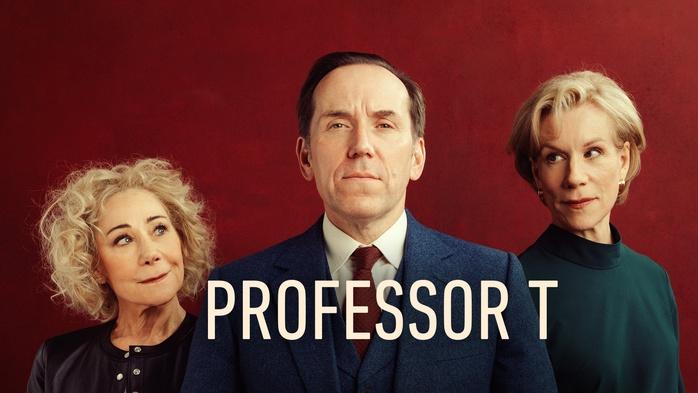


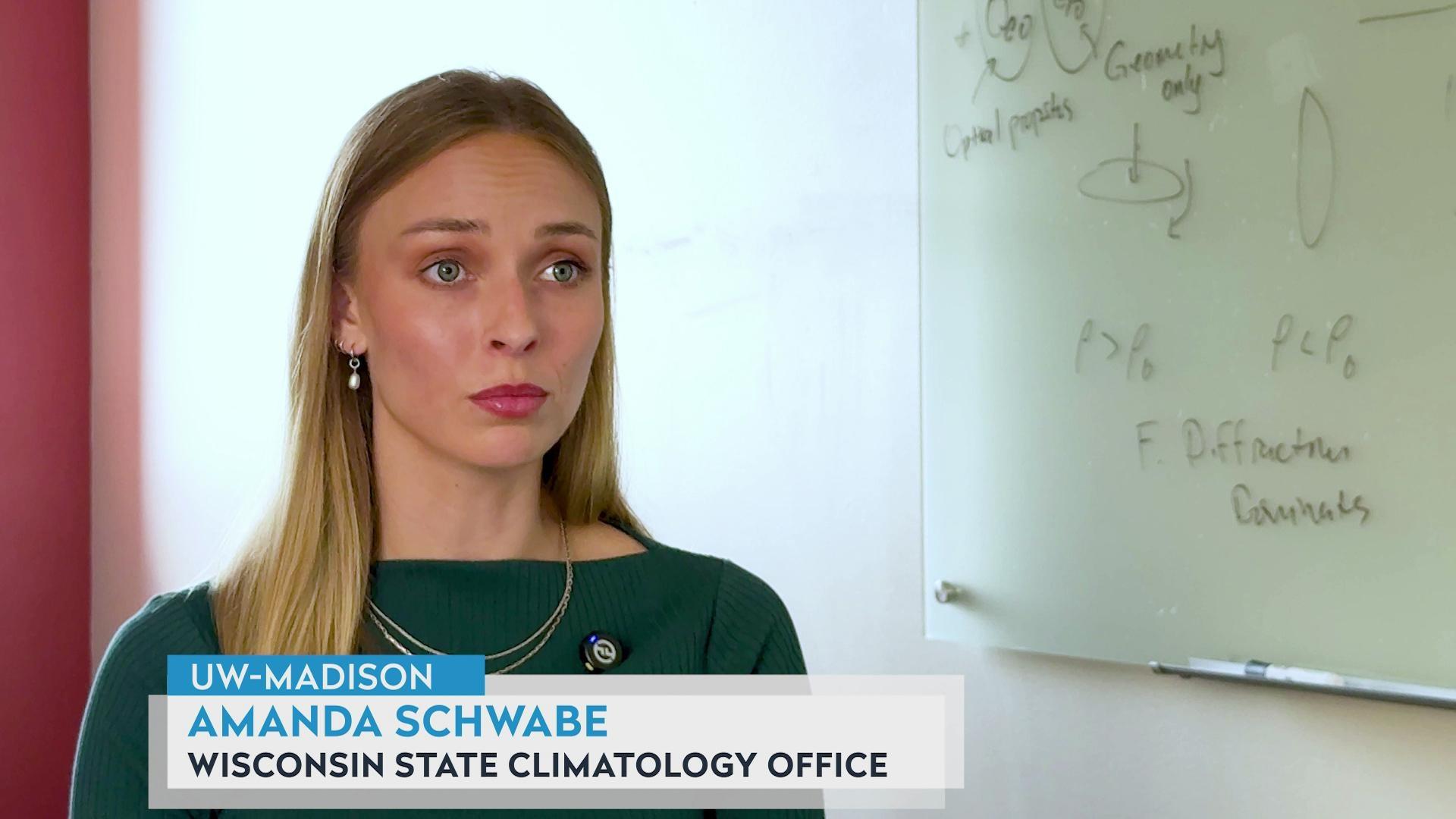
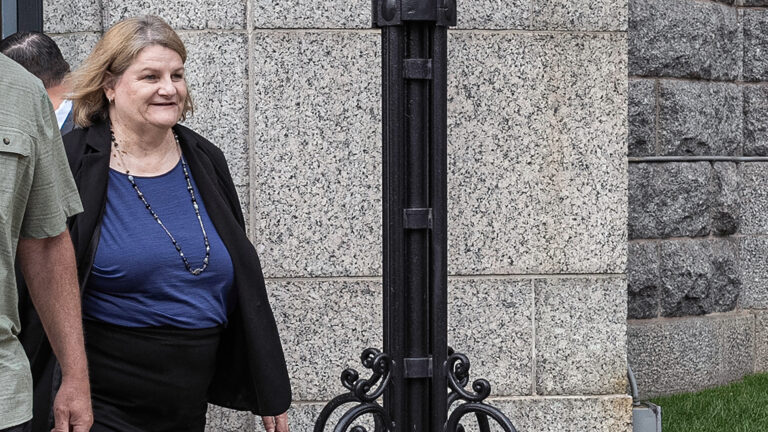


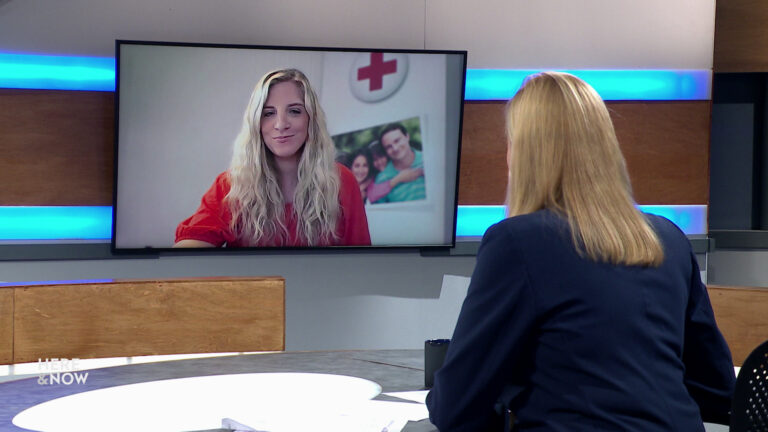

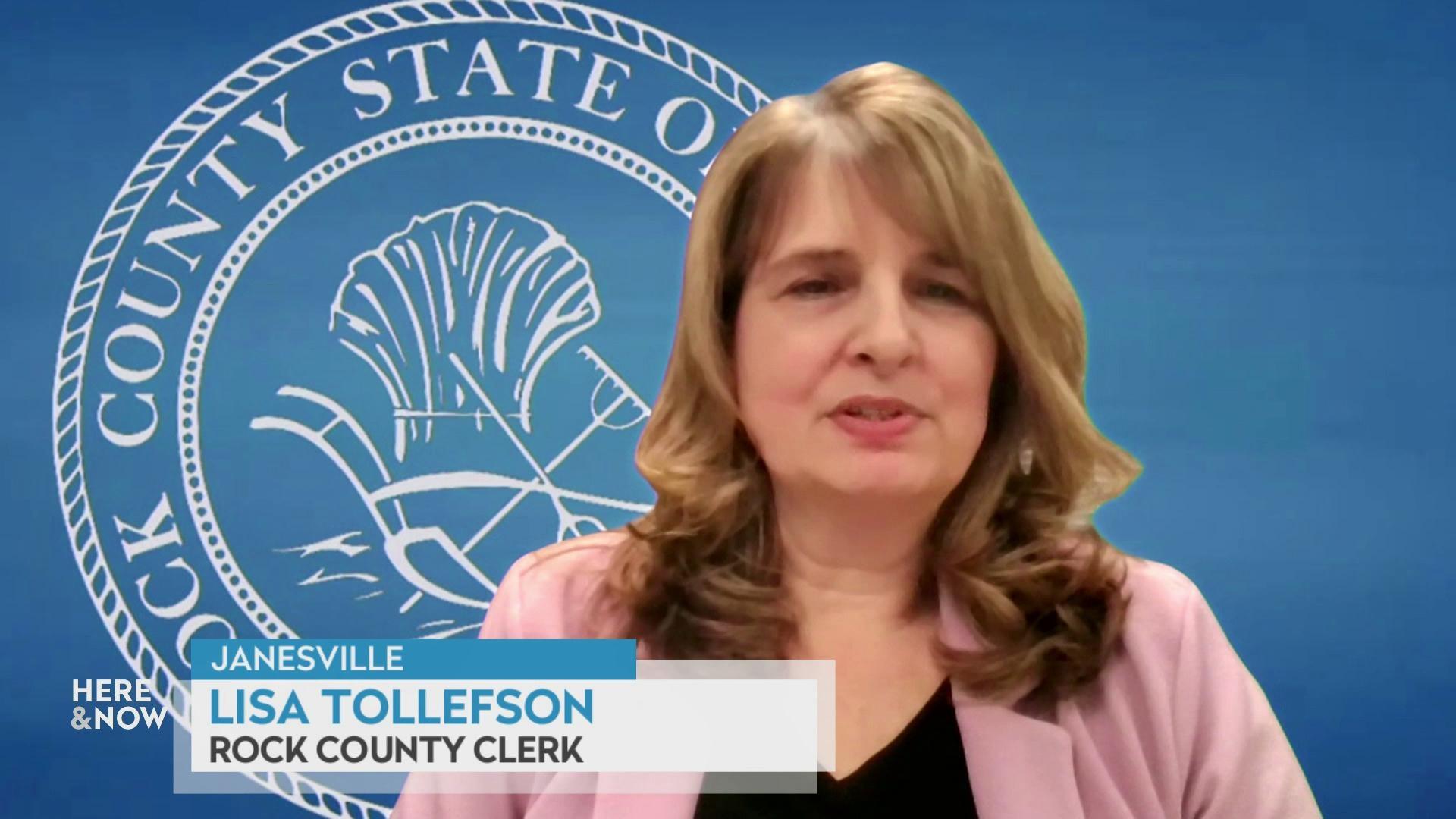
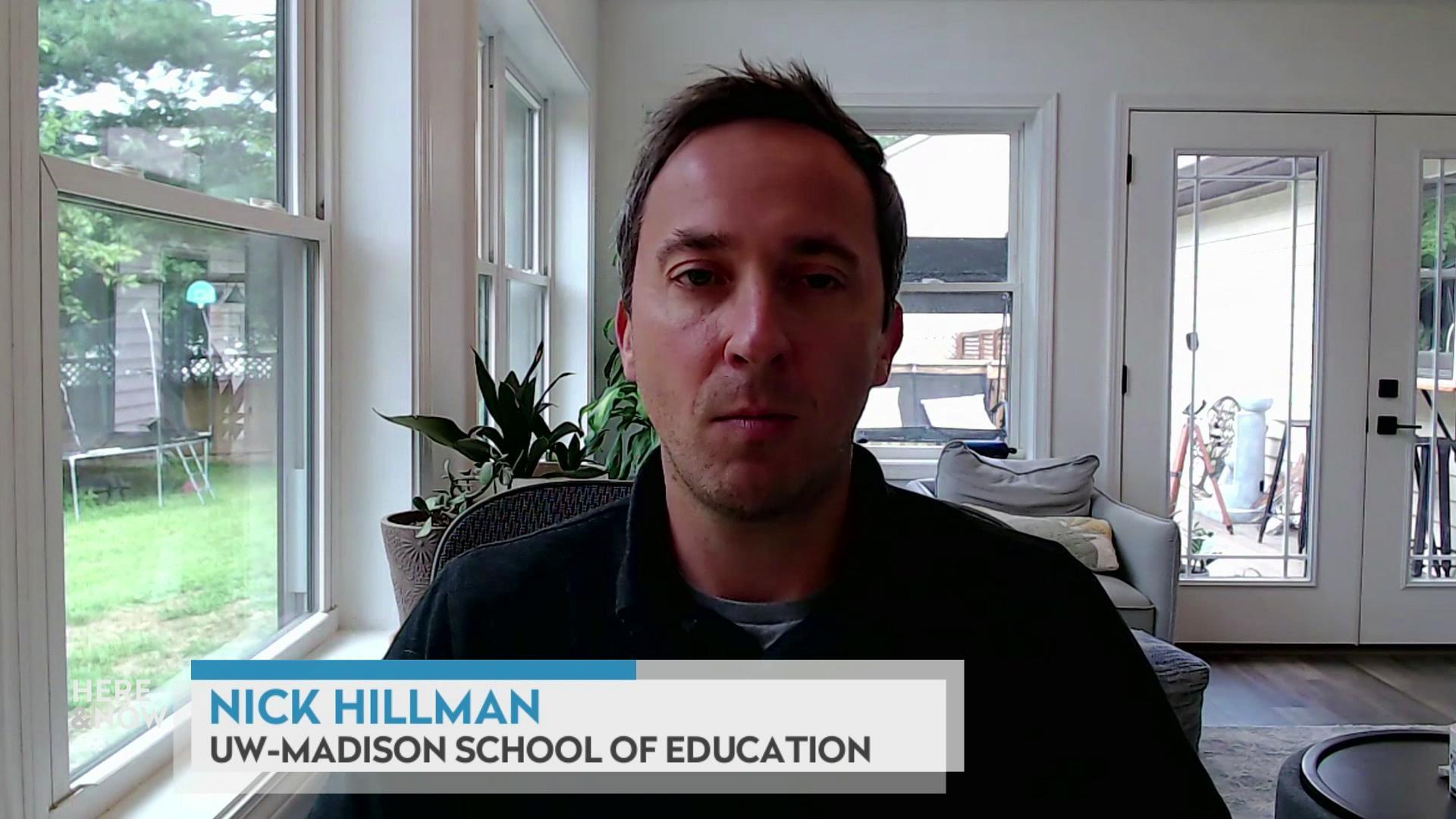
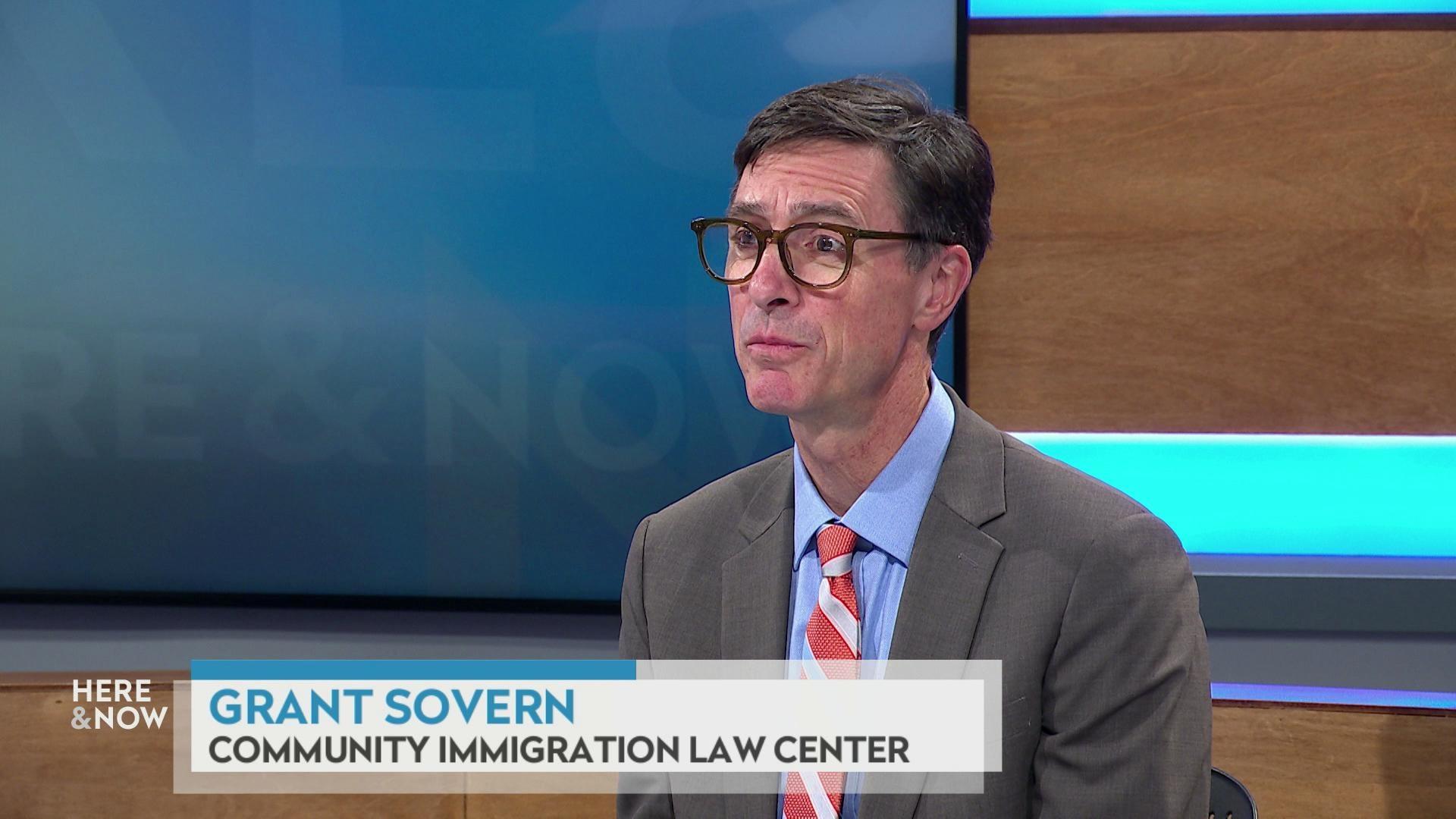
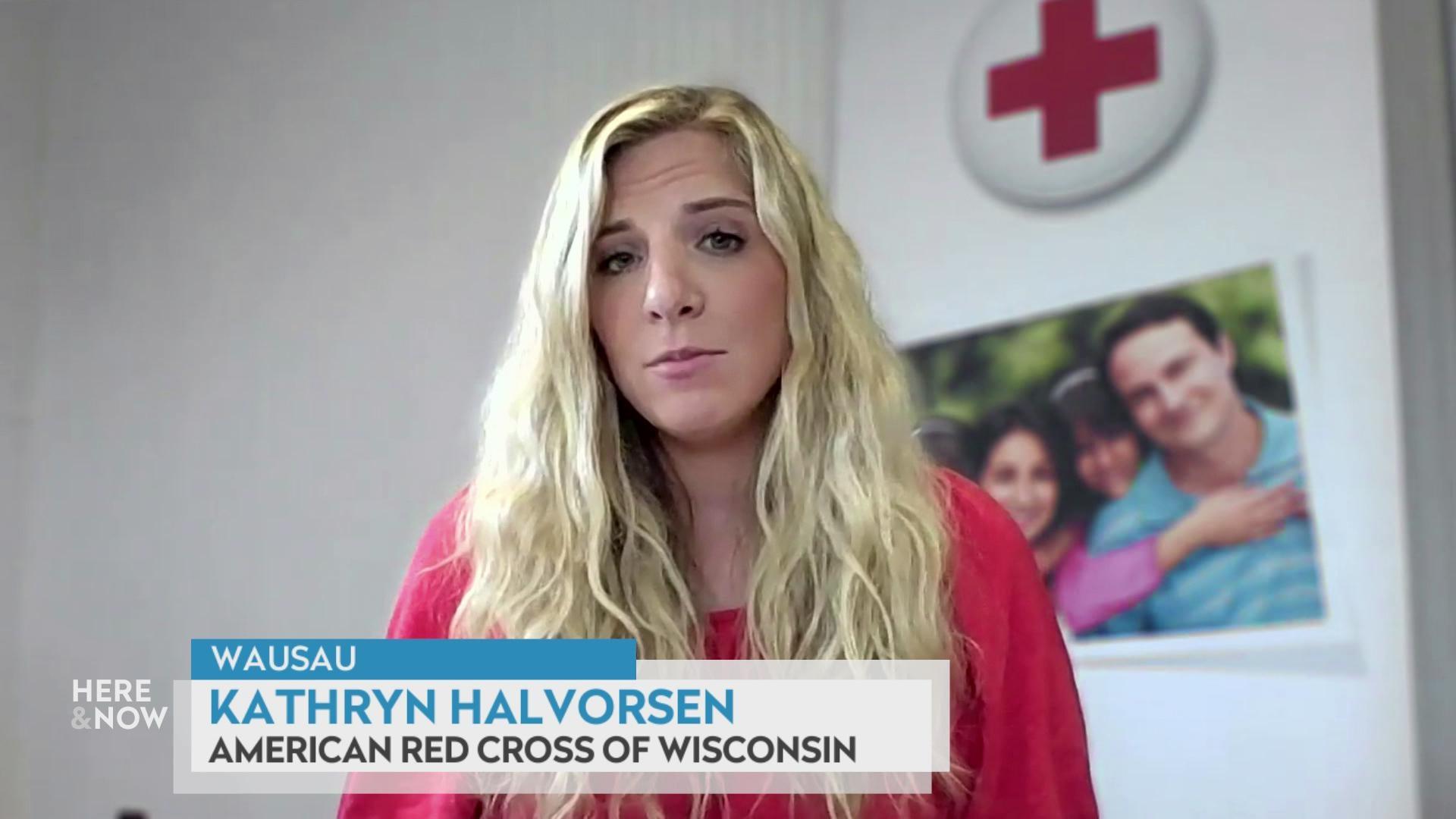
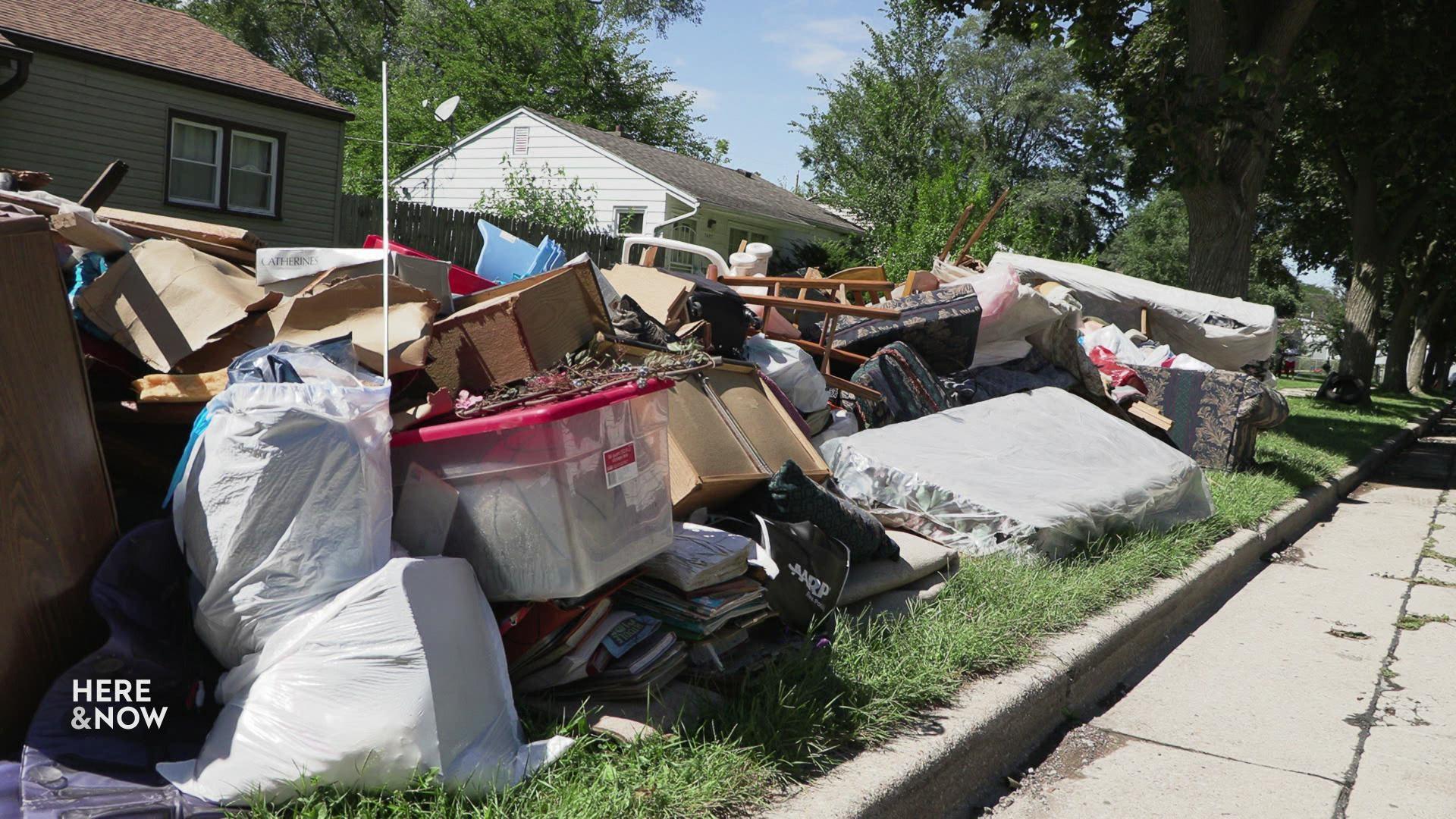

Follow Us